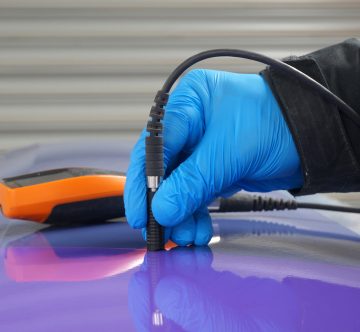Measurement of coating thickness is important in knowing if enough of a coating is applied on surfaces of automobiles. Whether it’s for improving the optical appeal of the surface or applying a layer of protection against corrosion, the accuracy of the measurement is important in ensuring quality and consistency in various applications.
Why accurate coating thickness measurement is important
In petrochemical plants, this kind of measurement is crucial in monitoring levels of corrosion and hence detecting potential problems in tanks and pipelines. A thin layer of coating is applied on the parts and components of these facilities to protect the core material from the outside elements. The physical abrasion and potential corrosion reactions can compromise the integrity of those tanks and pipeline assets.
In automobile manufacturing, the application of paint or gloss should be adequate and uniform to produce excellent results. Variations in vehicle paint jobs often signal a bigger problem in the production and quality control aspects of automobile manufacturing. It’s also a way for car dealerships and insurance claims investigators to know if there’s a built-in problem with the automobile of concern in the first place.
In other words, accurately knowing the coating thickness is crucial for quality and safety. Even if the coating is only a few nanometres thick (whether it’s for aesthetics or protective function), knowing the thickness is according to standards and specifications is one major aspect of ensuring quality and safety (as well as the reliability and longevity of a component or asset). Whether it’s for automobile, aircraft, chemical, petrochemical or even the medical and scientific fields, coating thickness measurement has always been a critical part of the inspection process.
To accomplish that, the measuring principles are often magnetic induction and eddy current. The non-destructive measurement can be done on conductive substrates such as aluminium and copper. There are a variety of instruments for use in manufacturing, metal processing, offshore installations and asset inspection to accomplish the task.
Here at NDT we can assist you in selecting the appropriate instruments for measuring coating thickness. Our reliable and modern handheld gauges have been present in many industrial facilities and critical assets in Australia. Contact us today for more information and technical assistance.


